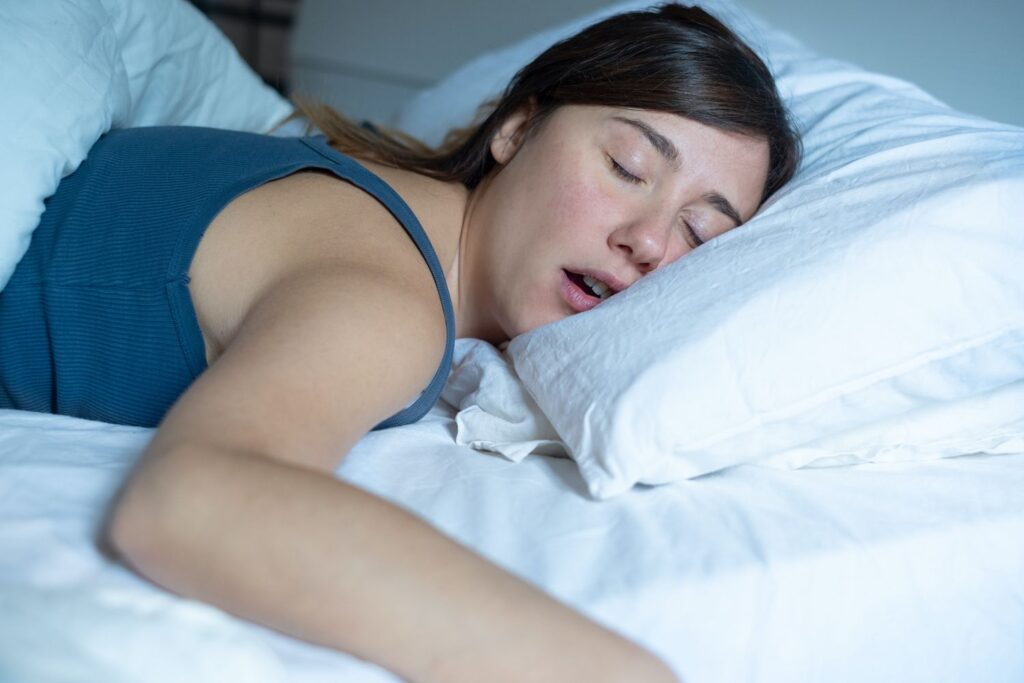Did you know that sleep apnea is a common sleep disorder that affects millions of people worldwide? It is a condition where your breathing repeatedly stops and starts while you sleep. Unfortunately, it can cause you to wake up frequently and leave you feeling tired and groggy during the day. Many people may have heard of sleep apnea, but they may not know how it can disrupt your health.
Of course, waking up multiple times a night is bad for your health. But did you also know that sleep apnea can have a significant impact on your dental health?

Dry Mouth
First and foremost, sleep apnea can lead to dry mouth. When you stop breathing during sleep, your mouth becomes dry because you aren’t producing saliva as much as you would during normal breathing. Saliva is important for keeping your mouth hydrated and washing away harmful bacteria that can cause cavities and gum disease. Without enough saliva, your teeth are at a higher risk of decay and other dental problems.
Bruxism
Another dental issue that sleep apnea can cause is bruxism or teeth grinding. People with sleep apnea are more likely to grind their teeth because the disorder can cause tension and stress in the jaw muscles. Over time, this can wear down the teeth, cause jaw pain, and even lead to temporomandibular joint (TMJ) disorder.
Gum Disease
Sleep apnea can also exacerbate existing dental problems. For example, if you already have gum disease, sleep apnea can make it worse because of the dry mouth and lack of saliva production. This can cause more inflammation and infection in the gums, leading to more severe gum disease and tooth loss.
What Are Your Treatment Options?
Fortunately, there are ways to manage sleep apnea and improve your dental health at the same time. One of the most effective treatments for sleep apnea is a continuous positive airway pressure (CPAP) machine. This device uses a mask that fits over your nose and/or mouth and delivers a constant flow of air pressure to keep your airway open while you sleep. This can help reduce the frequency and severity of apnea episodes, leading to better sleep and improved overall health.
In addition to using a CPAP machine, you can make other lifestyle changes to improve your sleep and dental health. For example, losing weight, quitting smoking, and reducing alcohol consumption can all help alleviate sleep apnea symptoms. These lifestyle changes can also improve your oral health by reducing inflammation and promoting saliva production.
If you think you may have sleep apnea, it’s important to talk to your dentist or doctor about getting a proper diagnosis and treatment plan. Your dentist can also provide recommendations for oral appliances that can help manage sleep apnea and protect your teeth from grinding and other dental issues.
